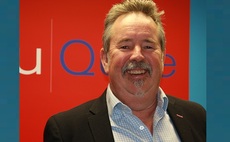COO Graham Baxter talks roaming charges and the challenge of calculating mobile data bills
Mobile operator Three carries 41.5 per cent of the UK's mobile data traffic (according to a 2013 Enders analysis) despite having only one in 10 of the country's mobile users as subscribers. This...
To continue reading this article...
Join Computing
- Unlimited access to real-time news, analysis and opinion from the technology industry
- Receive important and breaking news in our daily newsletter
- Be the first to hear about our events and awards programmes
- Join live member only interviews with IT leaders at the ‘IT Lounge’; your chance to ask your burning tech questions and have them answered
- Access to the Computing Delta hub providing market intelligence and research
- Receive our members-only newsletter with exclusive opinion pieces from senior IT Leaders























